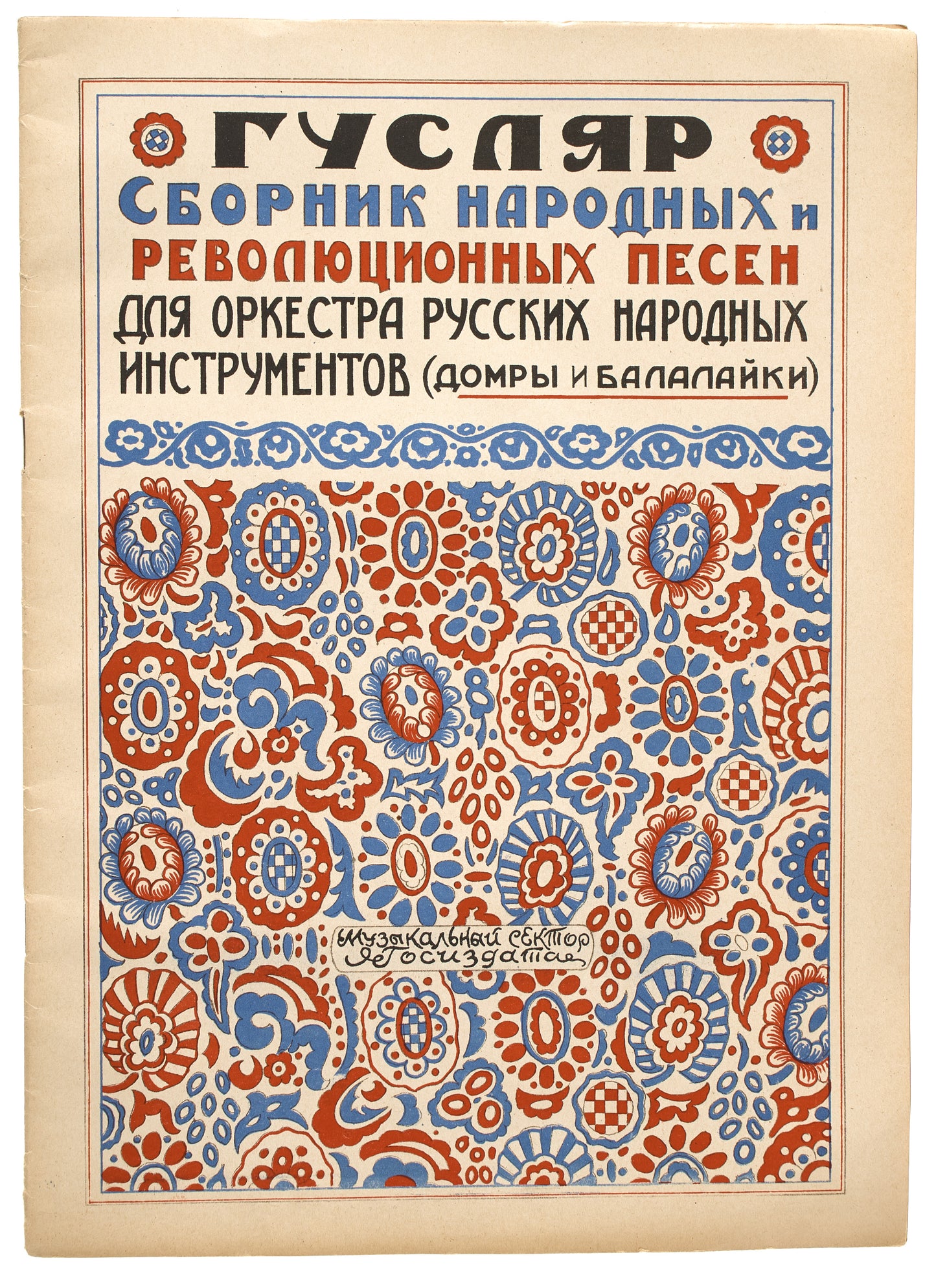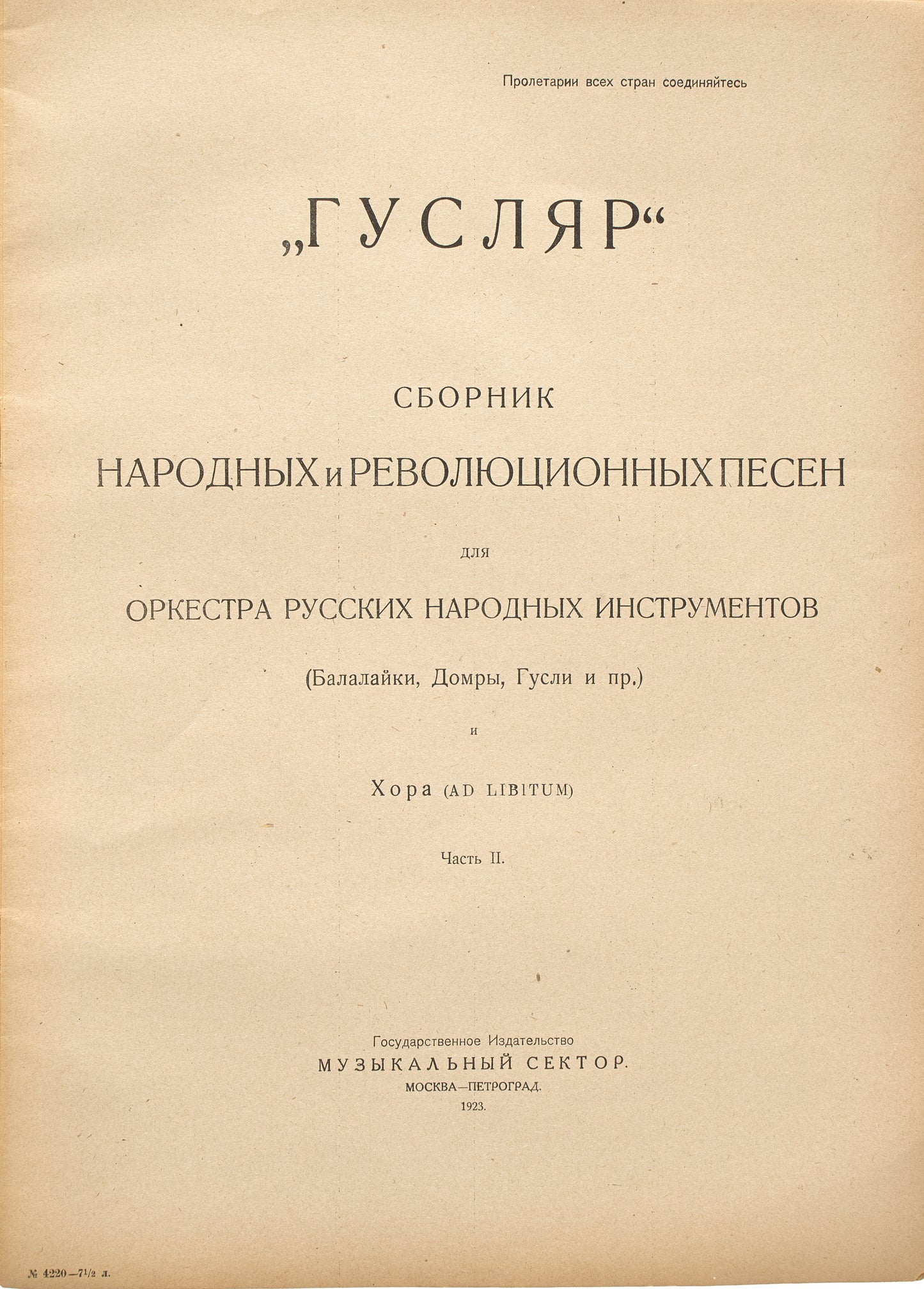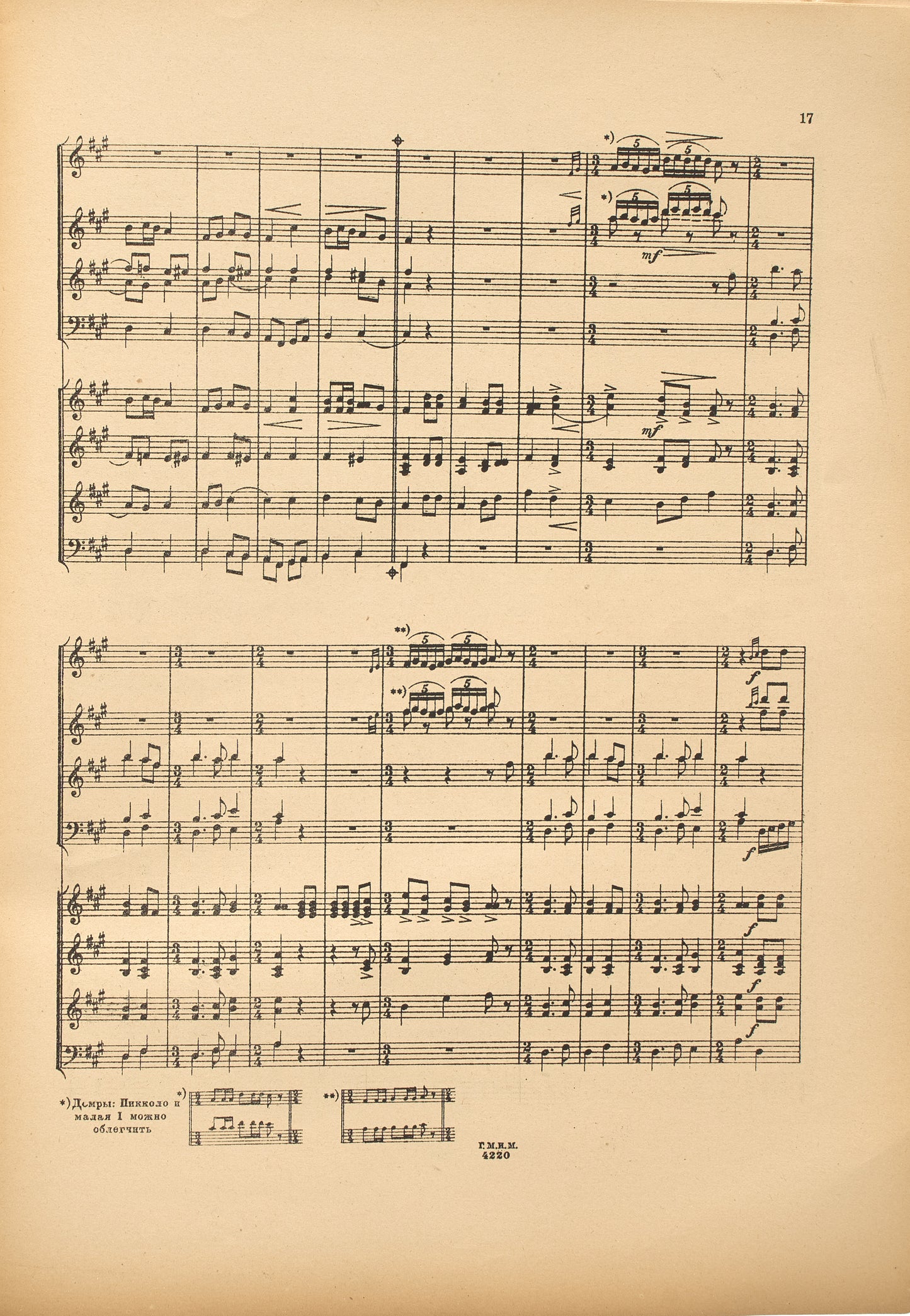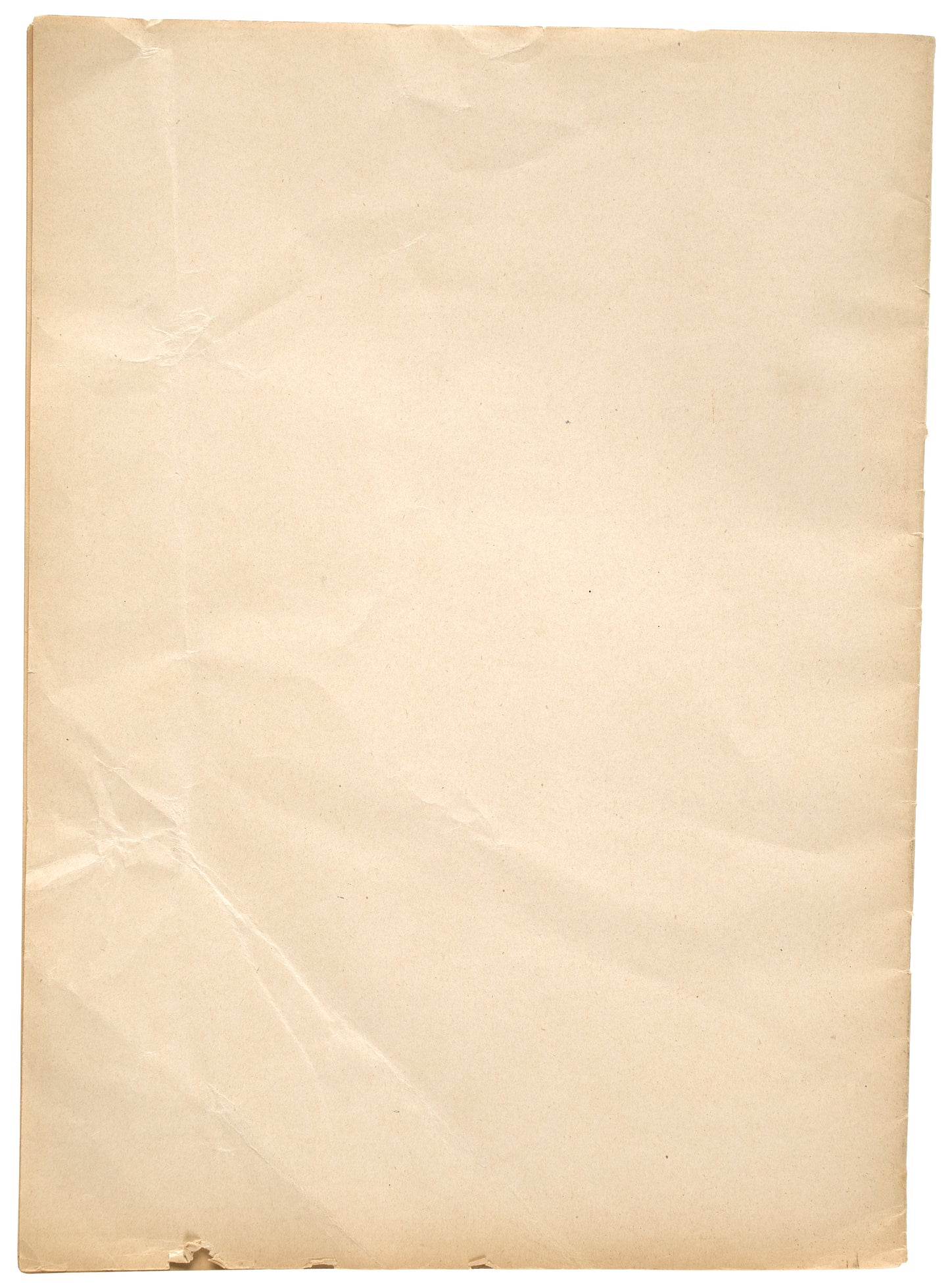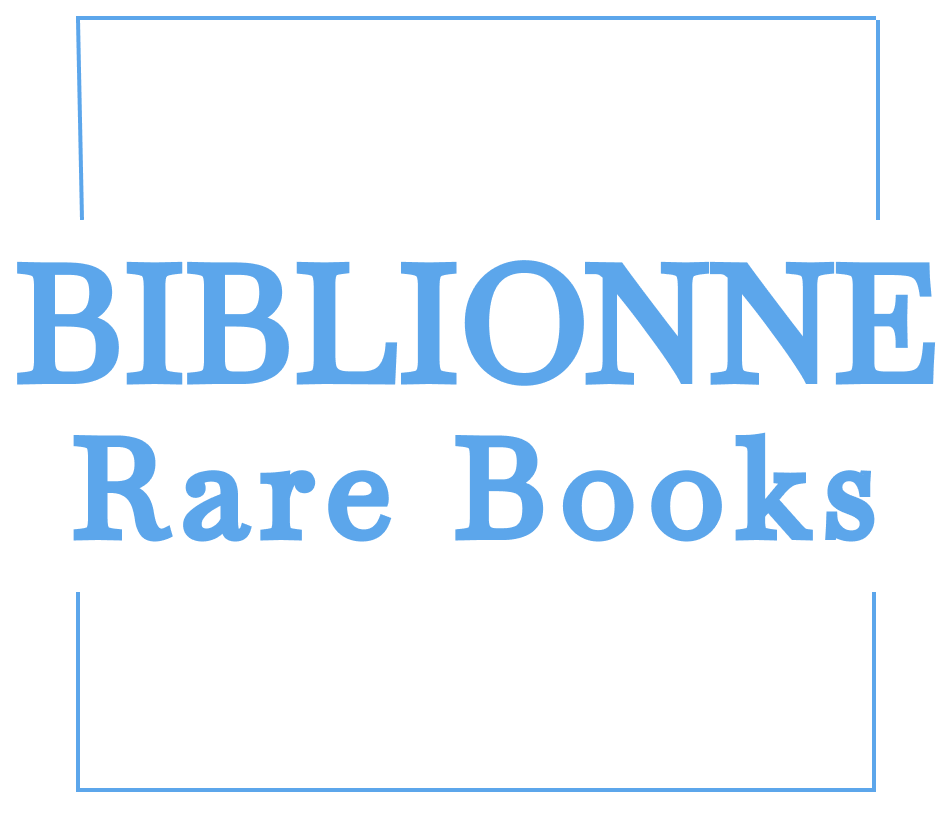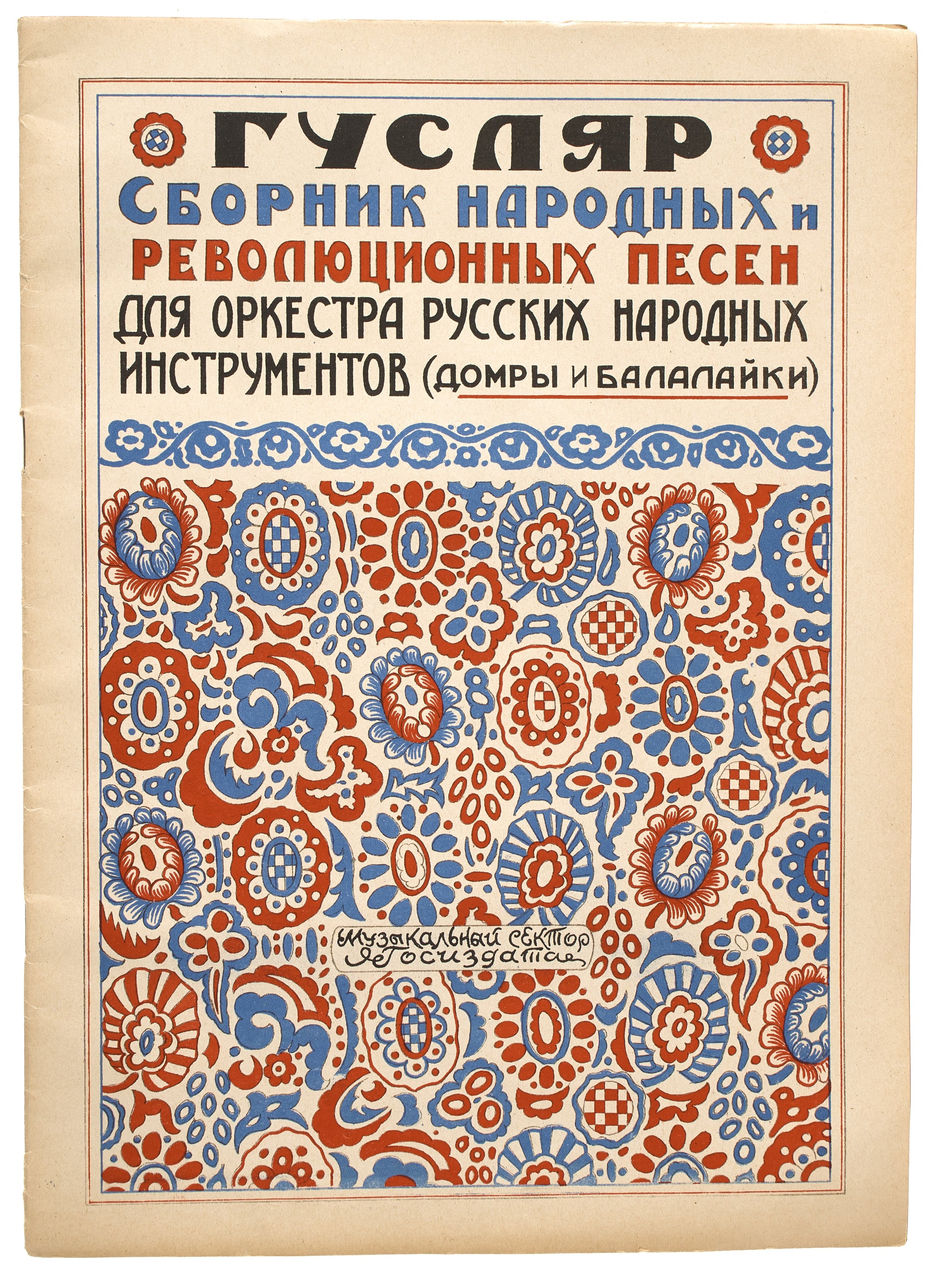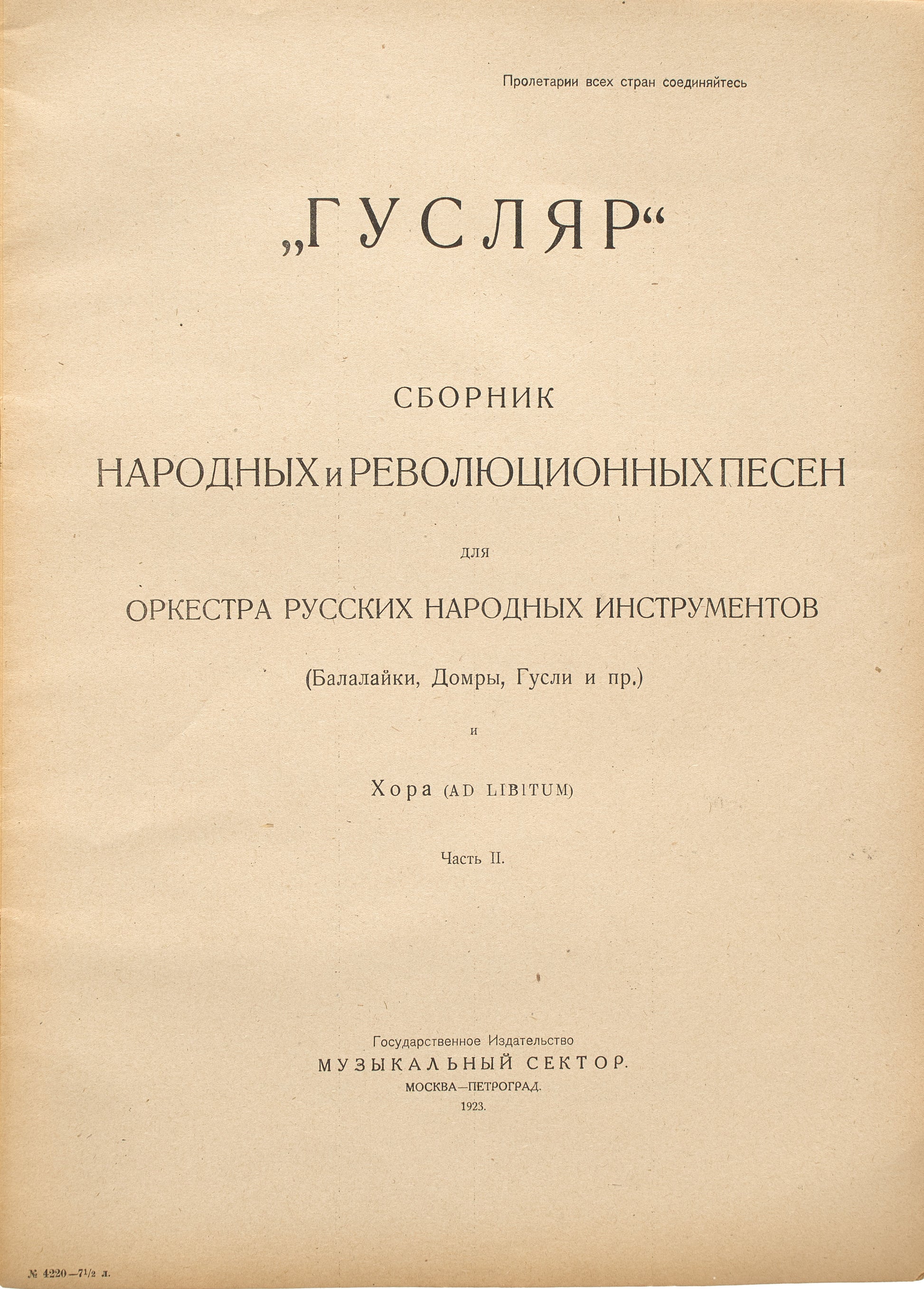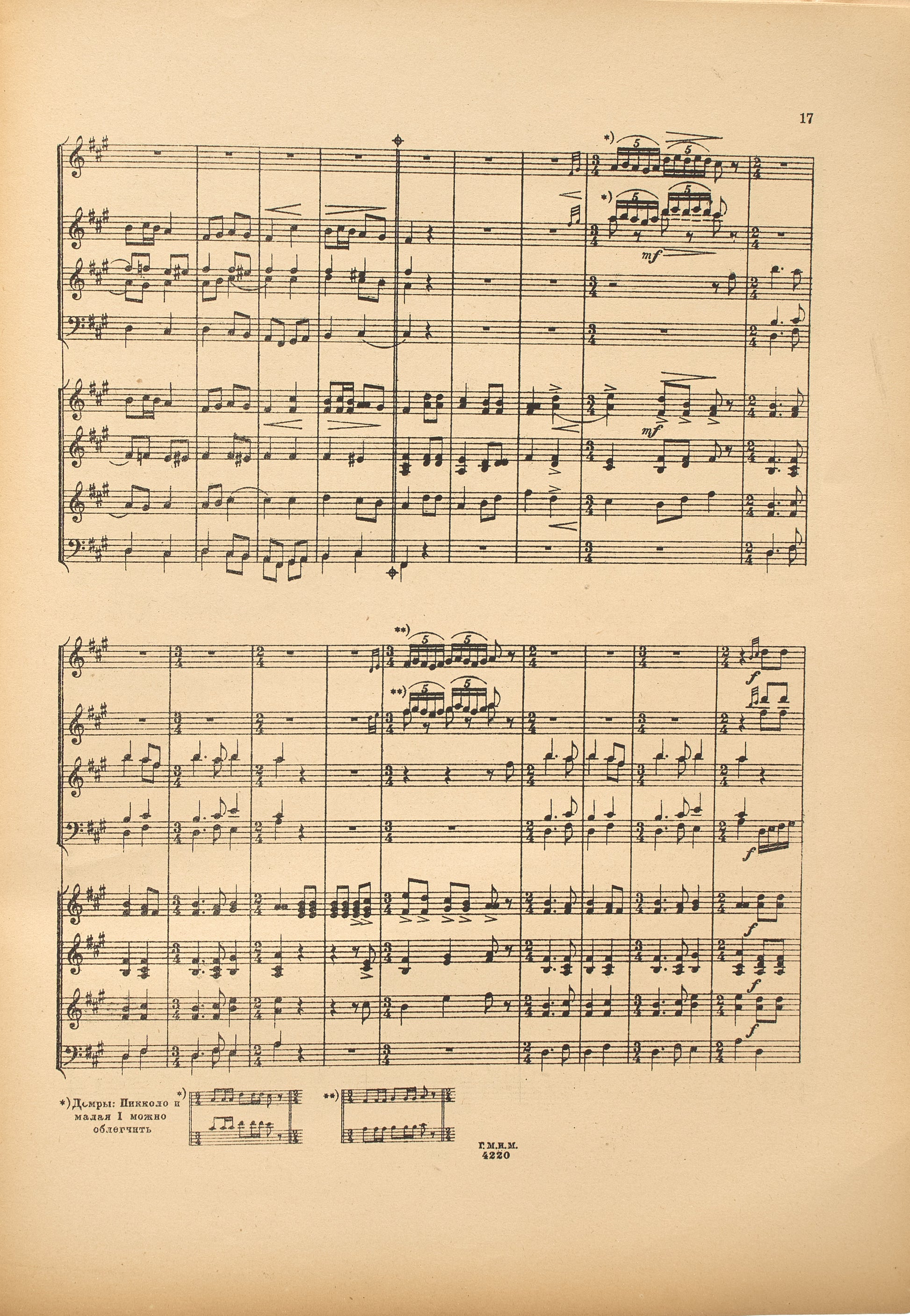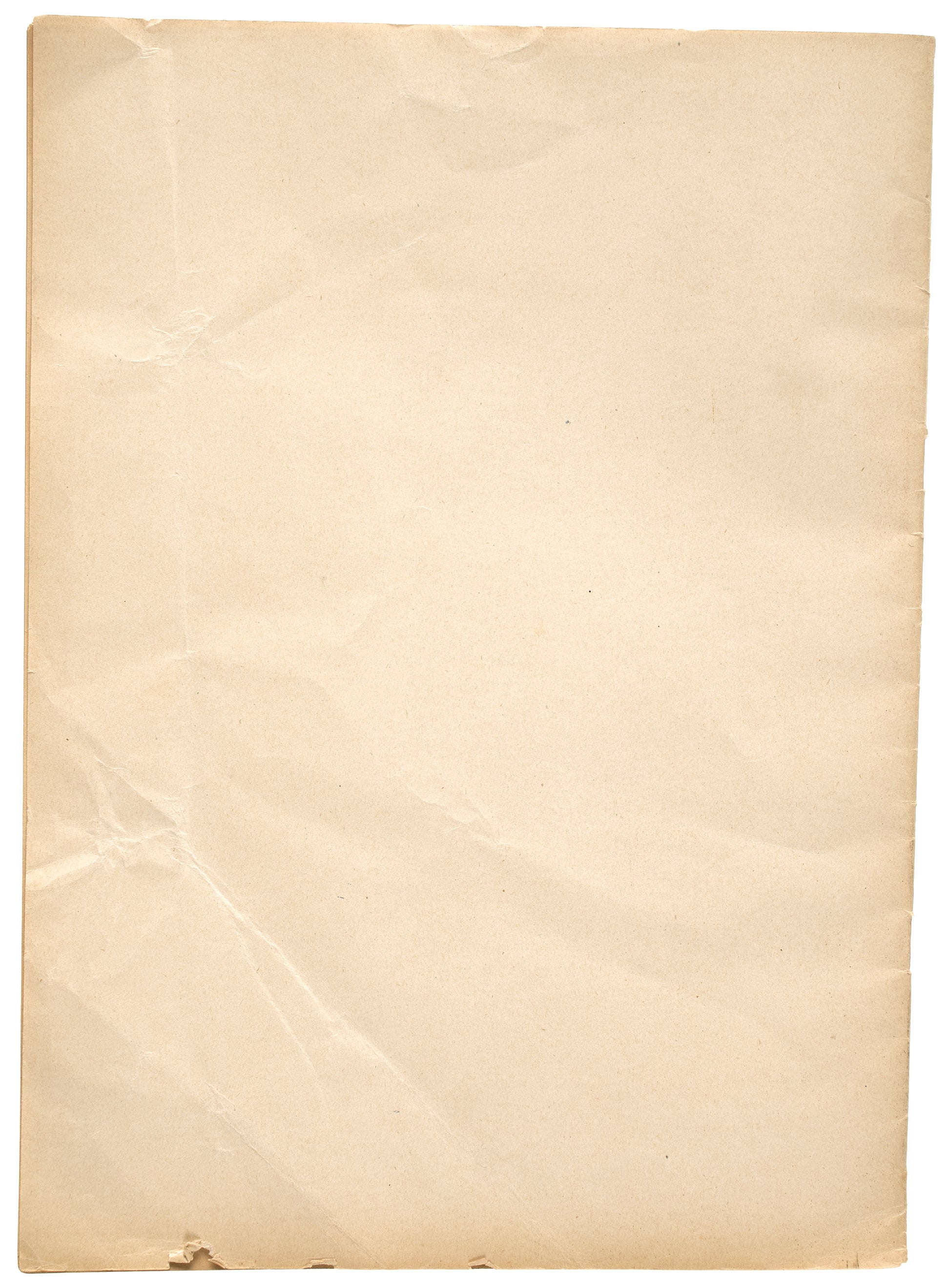"The Gusliar": A Collection of Folk and Revolutionary Songs for an Orchestra of Russian Folk Instruments.
"The Gusliar": A Collection of Folk and Revolutionary Songs for an Orchestra of Russian Folk Instruments.
Couldn't load pickup availability
["The Gusliar": A Collection of Folk and Revolutionary Songs for an Orchestra of Russian Folk Instruments (Domras and Balalaikas) and Choir (Ad Libitum)]. "Gusliar": Sbornik Narodnykh i Revolutsionnykh Pesen dlia Orkestra Russkikh Narodnykh Instrumentov (Domry i Balalaiki) i Khora (Ad Libitum).
Part II.
Moskva-Petrograd, Muzykalnyi sektor Gosizdata, 1923.
4to, 26 pp. of music.
In original pictorial wrappers.
Near very good condition, lightly rubbed to back cover, short tears to back cover.
A rare collection of notes for Russian folk instruments.
Two volumes of musical scores were published under this title. The first volume opens with a preface by Aleksandr Ilukhin (1900–1972) — a musician, conductor, and prominent figure in the field of Russian folk instrumental music. In 1921, he participated in the founding of the first Moscow Great Russian Orchestra of Folk Instruments and was actively involved in establishing folk orchestras in various military and civilian institutions. His most significant achievement was the founding and leadership of the country’s first Department of Folk Instruments at the Gnessin State Musical and Pedagogical Institute, which enabled performers of Russian folk instruments to receive a comprehensive musical education. It can be assumed that he also prepared the arrangements for all the songs in this collection.
This second volume contains sheet music for the following ten musical pieces: ‘Zvonili zvony v Novgorode’ (‘The Bells Rang in Novgorod’), ‘Protiazhnaia’ (‘Drawn-out Traditional Song’), ‘Govoril-to mne serdechnyi drug’ (‘My Faithful Friend Once Told Me’), ‘Ty ne stoi, kolodets’ (‘Don't Stand Still, Well’), ‘Ai, utushka lugovaia’ (‘Ah, Little Meadow Duck’), ‘Na gore to kalina’ (‘On the Hill Stands a Guelder-Rose’), ‘Koliada-Moliada’ (traditional winter solstice chant), ‘Pokhoronnyi marsh’ (‘Funeral March’), ‘Oktiabr’skaia’ (‘October Song’), ‘Internatsional’ (‘The Internationale’).
The collection concludes with 'The Internationale', symbolically closing the publication.
OCLC locates two copies of this part: in the National Library of France and the University of Illinois Library.
